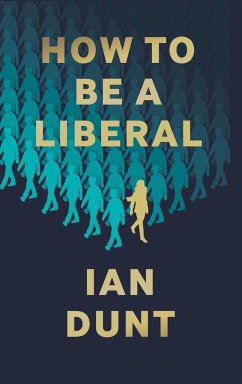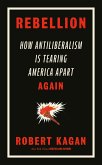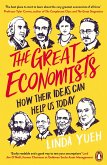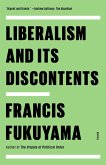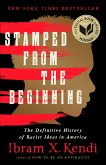'A tour de force.' - THE SECRET BARRISTER 'Clear-eyed and hard-headed. His defence of liberalism is political writing at its most urgent and engaging.' - NICK COHEN, OBSERVER COLUMNIST 'Dunt's gift for making complicated issues comprehensible is second to none. Courageous.' - JAMES O'BRIEN, LBC Nationalism has marched across the world. Wherever it goes, it seeks to destroy the liberal values that underpin Western civilisation. In this epic new book, political journalist Ian Dunt tells the forgotten story of the advance of liberalism and the events which led to its current retreat. His sweeping narrative takes in the Levellers, the American and French Revolutions, John Stuart Mill, the great economic clashes between John Maynard Keynes and Friedrich Hayek, and the works of George Orwell. He then traces how the financial crash, identity politics and post-truth have wreaked havoc on liberal values in some of the world's biggest countries. Weaving together history, philosophy and polemic, How To Be A Liberal stretches from the dawn of the age of science to the latest developments in politics and everyday life. This wide-ranging and powerful account will answer all the questions you have about what's happening to our society and how we create a better world.
Hinweis: Dieser Artikel kann nur an eine deutsche Lieferadresse ausgeliefert werden.
Hinweis: Dieser Artikel kann nur an eine deutsche Lieferadresse ausgeliefert werden.
'A tour de force; a mighty trumpet blast for the forces of liberalism and enlightenment in the face of a global tide of ignorance and populism.'
- THE SECRET BARRISTER
- THE SECRET BARRISTER
Dunt, editor of the website politics.co.uk, counterposes liberalism and nationalism, the latter of which, he writes, is based on a sixfold lie. Among its elements are the thought that we can have only one identity at a time, which makes us "part of the mass: an undifferentiated component of the whole," and the contention that any difference from that mass is bad. We see the sixth component, "there is no such thing as truth," enacted with every Trump tweet. As Orwell knew, when politicians can get away with lies, lie they will; if the concepts of truth and falsehood disappear, then they will do as they please. Having established this sixfold premise, Dunt examines the evolution of the idea of liberalism, at least some of which he traces back to Descartes and his obsession with the "gap between dream and reality, the thin line between being awake and…the crazed world of dreaming"—i.e., the foundational stuff of truth and lies. While Descartes is seldom pressed into political work, Dunt makes a good case for doing so. Other figures in the battle against authoritarianism include some of the usual suspects, such as John Locke and John Stuart Mill—who was careful to give credit to his partner, Harriet Taylor, a woman who even so "was erased" from the historical record. The paucity of intellectualism on the far right, an ideology "pumped into the heart and pursued with the fist," is as evident now as it was a century ago. In a book that makes a good companion to Adam Gopnik's A Thousand Small Sanities, Dunt takes down a few politically correct absurdities, but most of his fire is aimed squarely at Trump, Theresa May, Marine Le Pen, and other enemies of freedom. When in the course of human events it falls on us to resist, this makes a welcome guidebook.

